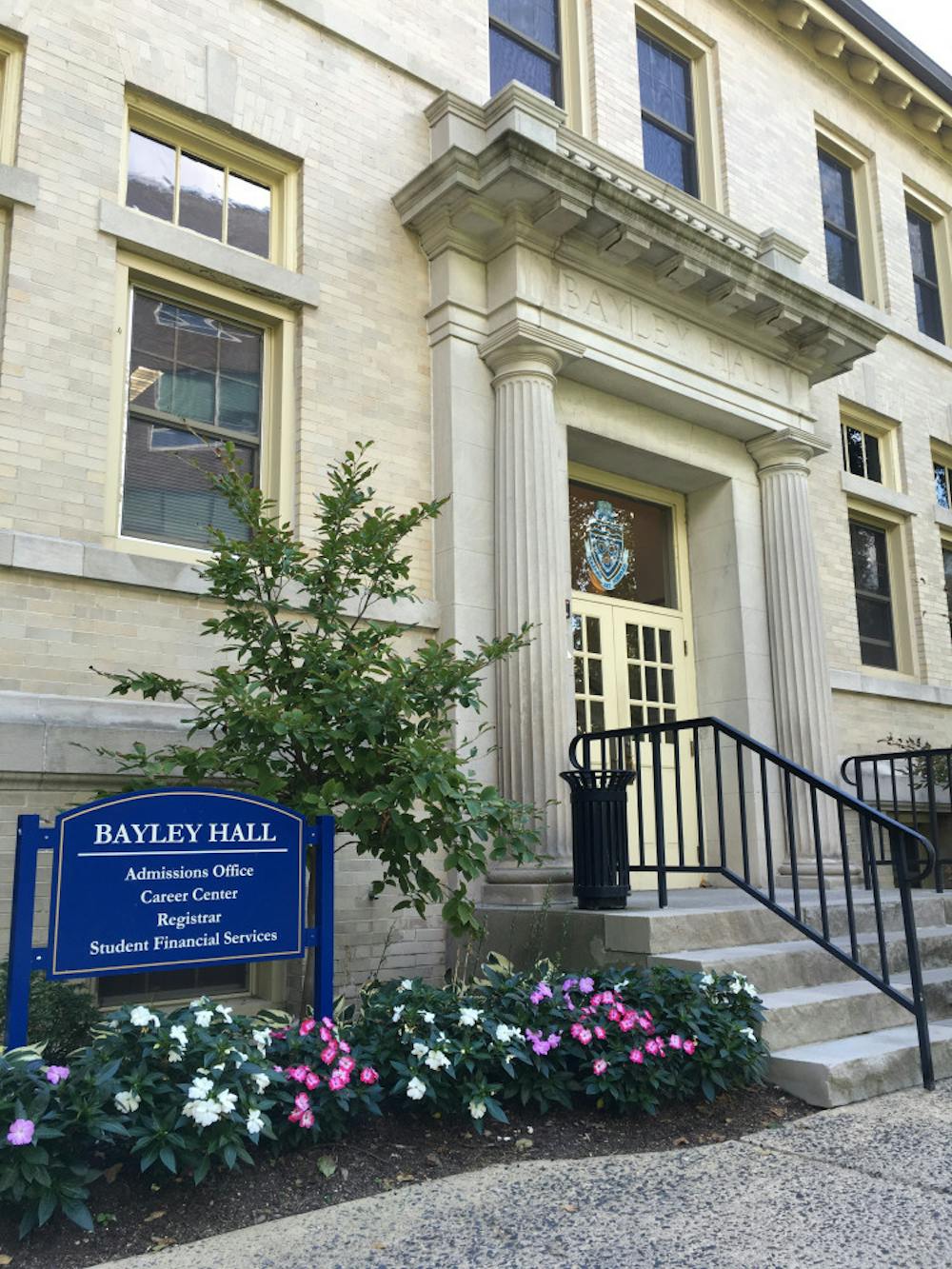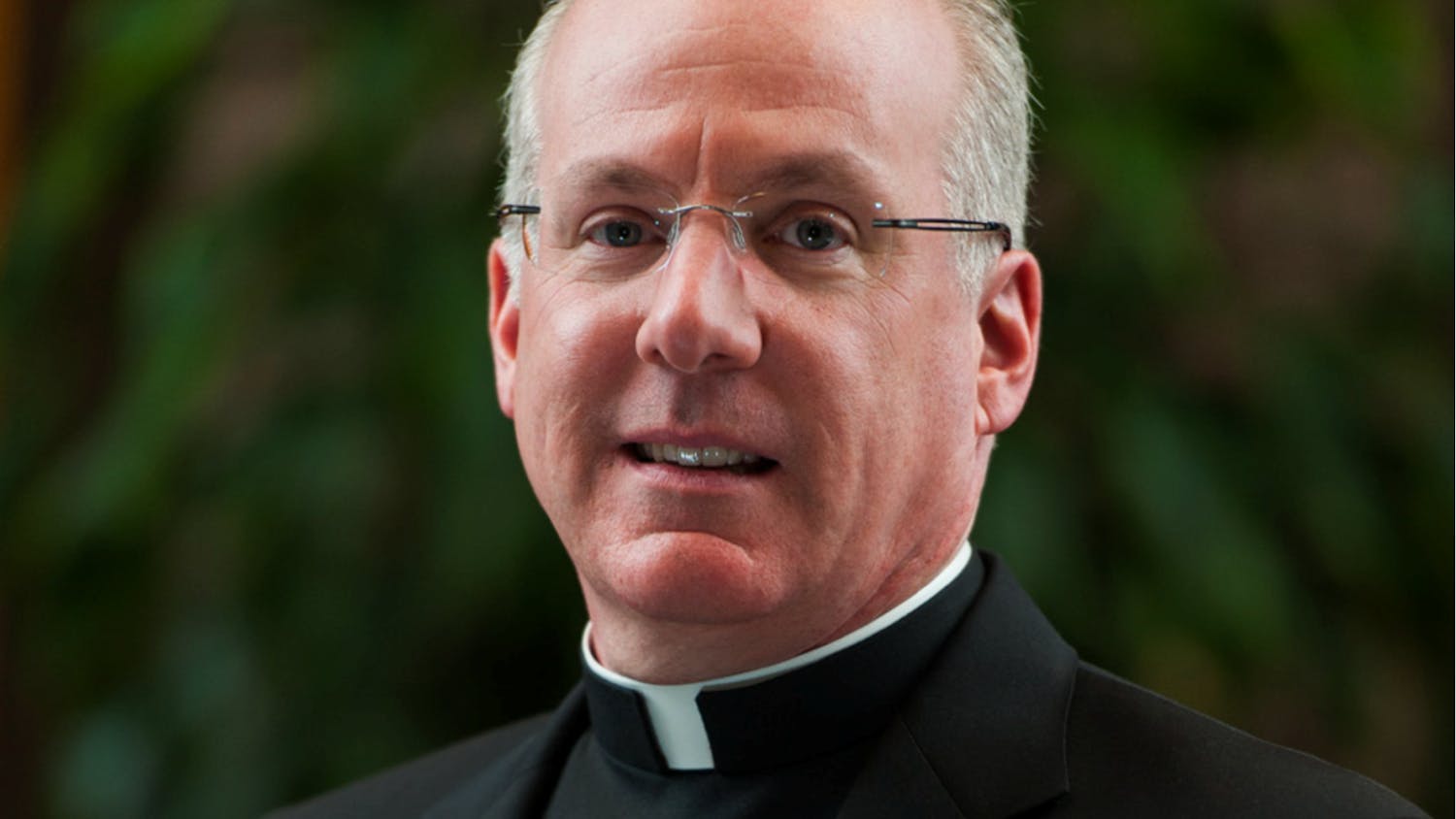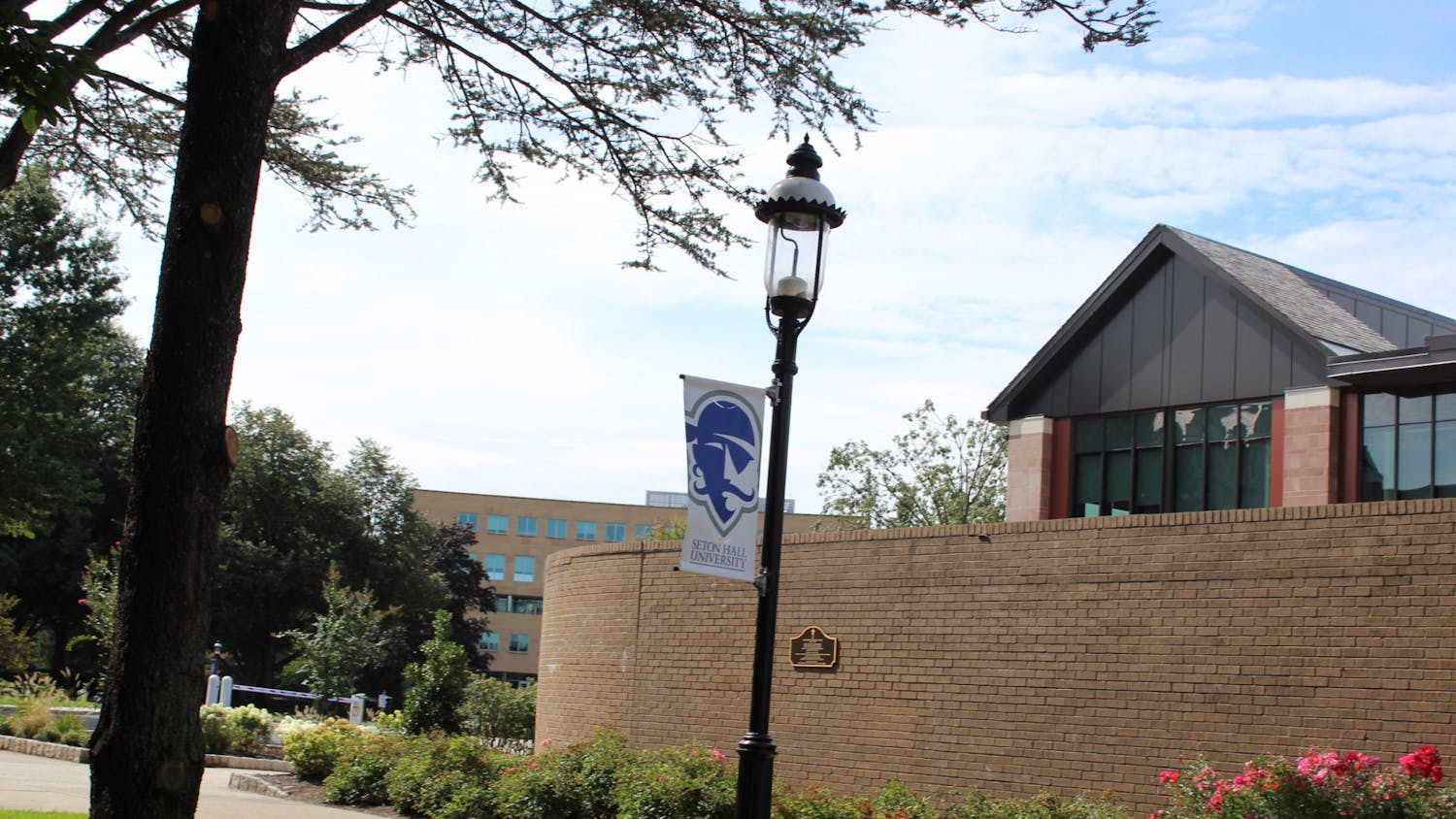[caption id="attachment_15251" align="aligncenter" width="768"] Morgan Tirpak/Staff Photographer[/caption]
The email alerting Simi Patel, a sophomore diplomacy major, to pick up a refund check in Bayley Hall because there were excess funds in her bursar account meant receiving a check of about $400, which delighted her. However, what she and other students are not realizing is that many times a refund check is the first warning that they may be over borrowing.
“I didn’t know about interest or over borrowing. This definitely needs to be publicized because I know people that purposefully make loans out to more than they need so that they can get the rest of that money in a check,” Patel said. “This puts things in a lot of perspective for me.”
Many Seton Hall students are just as unaware of these financial dangers as Patel. But the University offers help.
Andrew Minegar, director of Communication Services and Information Systems for Enrollment Services, showed that last academic year Seton Hall gave out 2,949 refund checks to undergraduate students amounting to more than $9 million.
The academic year ranged from Sept. 1, 2015 to Aug. 31, 2016.
For graduate students, it was 1,565 checks amounting to more than $11 million.
Bursar Catherine Winterfield said that sometimes students need these refund checks to pay for books or off campus housing, but most students do not understand the source of the refund check. If students are taking out too much loan money and they receive a refund check, that refund check will still collect interest because it is a loan.
The interest collected depends on the student because every student’s situation is unique, Winterfield said. As an example she said that an alternative loan from Sallie Mae, which provides education loans, could vary from about 2 to 10 percent.
Winterfield added that part of the problem is students don’t understand their bill.
“Students are academically ready when they come to college, but they need to be financially ready as well,” Winterfield said.
“Students don’t understand what they are paying interest on versus what they are not. It’s very personal and different for every student,” Winterfield said. “Some people are 100 percent loans and others are 25 percent, which is why it’s important for students to become financially astute.”
When Patel realized that her refund check gains interest and is a result of over borrowing, she was surprised no one told her this sooner.
Winterfield said that learning about your bill when you start classes in September is too late. She suggests that students get this information early on through utilizing programs like SALT, a financial advising program paid for by SHU, as soon as they are admitted.
When students are accepted to Seton Hall they can sit down with an admissions counselor to review financial aid award letters, but these counselors are not financial aid advisors. SALT has loan counselors who can bring students up to speed on their own financial situation.
“That way you can’t say you didn’t know what the interest rate on your loans is beforehand,” Winterfield said. “If everyone went through the programs on SALT we wouldn’t be having this conversation.”
Cailey Dahl, a freshman pre-nursing major, received her refund check email this year and decided to leave the money with the Office of the Bursar in case she needs the money at a later date.
“I did not know it was considered loan money so if I knew that I would have wanted to return it,” Dahl said in an email interview. “I really think they should publicize that. I’m going to Bayley Hall to talk to my advisor now to talk about returning the money instead of paying interest.”
According to a finance report run for this month by the Office of the Bursar, 325 undergraduate and graduate students have not cashed their refund checks. However, even though the checks are not cashed, they are still collecting interest.
Uncashed refund checks amounting to $250,000 are sitting in the Office of the Bursar right now gaining interest without students even using the money.
Winterfield said students can prevent this by simply returning the check to the Office of the Bursar.
Alyssa McCloud, vice president of Enrollment Management, said the best tips are, “If you ever get a refund check ask yourself if this money is going to cost me twice as much 10 years from now, do I really need it or can I do without it? Think about returning it.”
Winterfield said that figuring out how to pay for college is the first large purchase most college students make. They need guidance in understanding this.
“The Bursar’s office is here. Come ask your questions. There are no stupid questions,” Winterfield said. “That sounds so cliché, but it isn’t when it comes to your finances. The door is open all the time.”
Siobhan McGirl can be reached at siobhan.mcgirl@student.shu.edu.
Morgan Tirpak/Staff Photographer[/caption]
The email alerting Simi Patel, a sophomore diplomacy major, to pick up a refund check in Bayley Hall because there were excess funds in her bursar account meant receiving a check of about $400, which delighted her. However, what she and other students are not realizing is that many times a refund check is the first warning that they may be over borrowing.
“I didn’t know about interest or over borrowing. This definitely needs to be publicized because I know people that purposefully make loans out to more than they need so that they can get the rest of that money in a check,” Patel said. “This puts things in a lot of perspective for me.”
Many Seton Hall students are just as unaware of these financial dangers as Patel. But the University offers help.
Andrew Minegar, director of Communication Services and Information Systems for Enrollment Services, showed that last academic year Seton Hall gave out 2,949 refund checks to undergraduate students amounting to more than $9 million.
The academic year ranged from Sept. 1, 2015 to Aug. 31, 2016.
For graduate students, it was 1,565 checks amounting to more than $11 million.
Bursar Catherine Winterfield said that sometimes students need these refund checks to pay for books or off campus housing, but most students do not understand the source of the refund check. If students are taking out too much loan money and they receive a refund check, that refund check will still collect interest because it is a loan.
The interest collected depends on the student because every student’s situation is unique, Winterfield said. As an example she said that an alternative loan from Sallie Mae, which provides education loans, could vary from about 2 to 10 percent.
Winterfield added that part of the problem is students don’t understand their bill.
“Students are academically ready when they come to college, but they need to be financially ready as well,” Winterfield said.
“Students don’t understand what they are paying interest on versus what they are not. It’s very personal and different for every student,” Winterfield said. “Some people are 100 percent loans and others are 25 percent, which is why it’s important for students to become financially astute.”
When Patel realized that her refund check gains interest and is a result of over borrowing, she was surprised no one told her this sooner.
Winterfield said that learning about your bill when you start classes in September is too late. She suggests that students get this information early on through utilizing programs like SALT, a financial advising program paid for by SHU, as soon as they are admitted.
When students are accepted to Seton Hall they can sit down with an admissions counselor to review financial aid award letters, but these counselors are not financial aid advisors. SALT has loan counselors who can bring students up to speed on their own financial situation.
“That way you can’t say you didn’t know what the interest rate on your loans is beforehand,” Winterfield said. “If everyone went through the programs on SALT we wouldn’t be having this conversation.”
Cailey Dahl, a freshman pre-nursing major, received her refund check email this year and decided to leave the money with the Office of the Bursar in case she needs the money at a later date.
“I did not know it was considered loan money so if I knew that I would have wanted to return it,” Dahl said in an email interview. “I really think they should publicize that. I’m going to Bayley Hall to talk to my advisor now to talk about returning the money instead of paying interest.”
According to a finance report run for this month by the Office of the Bursar, 325 undergraduate and graduate students have not cashed their refund checks. However, even though the checks are not cashed, they are still collecting interest.
Uncashed refund checks amounting to $250,000 are sitting in the Office of the Bursar right now gaining interest without students even using the money.
Winterfield said students can prevent this by simply returning the check to the Office of the Bursar.
Alyssa McCloud, vice president of Enrollment Management, said the best tips are, “If you ever get a refund check ask yourself if this money is going to cost me twice as much 10 years from now, do I really need it or can I do without it? Think about returning it.”
Winterfield said that figuring out how to pay for college is the first large purchase most college students make. They need guidance in understanding this.
“The Bursar’s office is here. Come ask your questions. There are no stupid questions,” Winterfield said. “That sounds so cliché, but it isn’t when it comes to your finances. The door is open all the time.”
Siobhan McGirl can be reached at siobhan.mcgirl@student.shu.edu.





